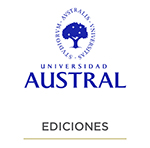The Prohibition of Indefinite Re-election: Analysis from the Inter-American Human Rights System
DOI:
https://doi.org/10.26422/RJA.2025.0601.vazKeywords:
indefinite re-election, representative democracy, human rights, Inter-American Court of Human Rights, ArgentinaAbstract
This article analyzes the ruling of the Supreme Court of Argentina in the case 'Confederación Frente Amplio Formoseño c/ Formosa, Provincia de s/ amparo' and relates it to Advisory Opinion OC-28/21 of the Inter-American Court of Human Rights on indefinite presidential re-election. It is argued that indefinite re-election is incompatible with the principles of representative democracy and international human rights standards. The study addresses the concepts of legality, necessity, and proportionality within the framework of Article 23 of the ACHR and highlights the importance of power alternation as an essential element of a democratic system. Furthermore, it reflects on the political and social impacts of such restrictions in the Latin American context.
Downloads
References
Alberdi, J. B. (1998). Bases y puntos de partida para la organización política de la República Argentina. Editorial Ciudad Argentina.
Bidart Campos, G. J. (1993). Tratado elemental de derecho constitucional argentino (Tomo I). Ediar.
Bobbio, N. (1987). El futuro de la democracia. Fondo de Cultura Económica.
Gargarella, R. (2013). La sala de máquinas de la Constitución. Katz Editores.
Gelli, M. A. (2015). Constitución de la Nación Argentina. Comentada y Concordada. Tomo I. Artículos 1 a 43 (4a ed. ampliada y actualizada). La Ley.
Martínez Martínez, P. (1995). Federalismo y gobierno local. Revista Gestión y Estrategia, (8), 455-470. https://doi.org/10.24275/uam/azc/dcsh/gye/1995N08/Martinez
Serrafero, M. D. (2019). Presidencialismo y Parlamentarismo en Argentina. Ediar
Touraine, A. (1998). ¿Qué es la democracia? Fondo de Cultura Económica.
Downloads
Published
Issue
Section
License
License Creative Commons Atribución-NoComercial-SinDerivadas 4.0 Internacional (CC BY-NC-ND 4.0).
This license allows the copy, distribution, exhibition and representation of the work provided authorship is acknowledged and the work is properly quoted. Commercial use of the original work or the generation of derived works are not allowed.
The authors hereby guarantee the right to the first publication of the work to the Revista Jurídica Austral.













































